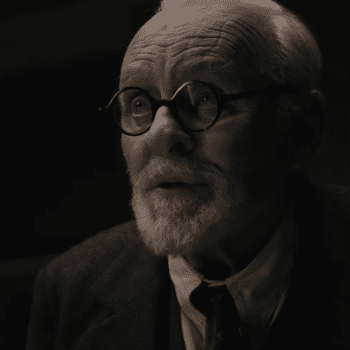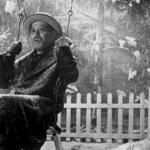
This moral conundrum is true to Christie’s book and the (superior) 1974 film. Christie wants us to grapple with this question, just as Poirot and his associates must.
But in Branagh’s vision, this ethical and ultimately spiritual question takes center stage—so much so that the murder’s intricate resolution is shunted to the side. Important clues are glossed over. Critical reveals are soft-pedaled. The big reveal feels rushed and ancillary because we’re encouraged to focus on Poirot’s crisis of conscience.
And that’s why the movie ultimately falls short.
Listen, I like morally ambiguous movies—films that force us to question what we think and believe and why. Martin Scorcese’s criminally overlooked Silence was a masterpiece in this regard.
But I don’t enjoy Agatha Christie-style murder mysteries for their moral ambiguity. I don’t need them to remind me that the universe is a crazy-complex place. I enjoy those mysteries for the same reason that Poirot “enjoys” them: They help make sense out of chaos. They provide, even sometimes in the midst of some moral ambiguity, a sense of clarity.
To Branagh’s conflicted Poirot, I would offer the words of mystery writer Dorothy L. Sayers, a Christie contemporary: “It doesn’t do to murder people, no matter how offensive they may be.”
“What the detective story is about is not murder but the restoration of order,” said legendary mystery writer P.D. James, and she’s right: Every classic murder mystery seems an impossible puzzle. Someone’s dead and no one knows who did it or why or even how. But, through work and observation and maybe a little intuition, our intrepid detectives make sense of the matter. Order is found. Sure, literary mysteries don’t necessarily answer everything, and certainly clear-cut resolutions are growing ever-more rare. Writers understand that the human condition is a mystifying thing—a puzzle beyond measure. And yet when it comes to the who and what and how of a case, we find resolution. We find answers. And that’s pretty gratifying.
And within this fiction, we find find real-life hope.
Our world, and our place within that world, can be puzzling. We wonder what our purpose is, where we can find meaning. We see our twisted realities and our own broken conditions and we’re left with the worst sort of mystery: Why it has to be like this. Like Poirot on the Orient Express, we see our universe and find it a grand, inscrutable puzzle.
Mysteries suggest that puzzles, even the biggest, have answers. I don’t think it’s an accident that some of the greatest mystery writers of our times have been Christian. Sayers wrote books about the faith. James penned Children of Men, a powerfully theological book. Even my favorite Christian author, G.K. Chesterton, was perhaps most famous for his Father Brown mystery stories.
“What we all dread most,” Chesterton wrote in The Head of Caesar, “is a maze with no centre. That is why atheism is only a nightmare.”
Classic mysteries give us mazes with centers. With answers. That’s why they’re so satisfying to read and watch, I think. Christie’s Murder on the Orient Express unpacked another maze in that center, admittedly, but the emphasis was still on the center. Branagh’s Murder places an emphasis on that secondary maze, and that’s just not as satisfying.













